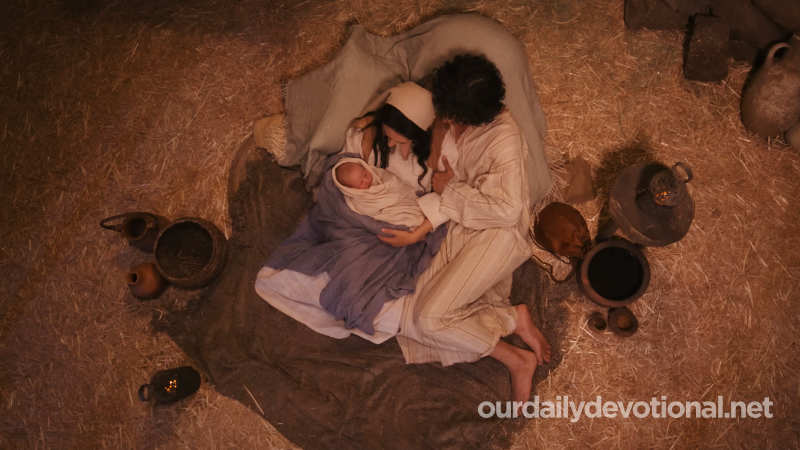This term has two different meanings in the Scriptures.
(a) Determining force, acting in a single direction and compelling the will (Rom. 7:23).
(b) Standard of conduct, imposed by a competent authority, under threat of sanction in case of disobedience. The Bible uses this term in this sense in most cases.
There are numerous customs inherent to life in society that have finally been codified, but a law can be imposed by an earthly or divine authority without coming from a custom or previous legislation.
The Castilian term "law" (from the Latin "lex" and "ligare", to bind) translates the Heb. "Torah", instruction, and aram. «Dath», discreet, and the gr. "Nomos", custom, law. With the exception of the meaning under the previous sense (a), this term "law" means a rule of conduct, which emanates from an authority that is revealed to the heart, or that is imposed externally.
The law may be decreed by governments (Ezra 7:26; Esther 1:19; Dan. 6:8), or it may come directly from God, by audible supernatural revelation, as at Sinai, or through the ministry of the inspired prophets (Zech. 7:12).
The moral law is also made known through the conscience (Rom. 2:14, 15). The beginning of wisdom is the fear of God, obedience to his will, the study of his word, the knowledge of the human heart, and the practice of holiness.
The teaching of this divine wisdom is like bringing forth a fountain of life (Prov. 13:14). Following the wise precepts enunciated by the fathers is a crown of grace (Prov. 1:8, 9).
The Law of the OT.
The expression "the Law", preceded by the definite article, without a qualifier, is sometimes applied to the entire OT (Jn. 12:34; 1 Cor. 14:21; cf. Jn. 10:34; 15:25) , but more frequently designates the Pentateuch (Josh. 1:8; Neh. 8:2, 3, 14; Mt. 5:17; 7:12; Luke 16:16; Jn. 1:17).
God used Moses to communicate the Law (Ex. 20:19-22; Mt. 15:4; Jn. 1:17). It is the Law of Jehovah (Josh. 24:26; 2 Chron. 31:3), written in a book (Josh. 1:7, 8), including the ordinances of Exodus, Leviticus, Numbers, Deuteronomy (cf. Mt. 12:26 and Ex. 3:6; Mr. 7:10 and Ex. 20:12; 21:17; Luke 2:22 and Jn. 7:22, 23; Lev. 12:2, 3; Mt. 8:4 and Lev. 14:3; Mt. 19:8; 22:24 and Deut. 24:1; 25:5).
The Pentateuch, the first division of the canon, was called the Law (Luke 24:44). The Ten Commandments and the statutes that appear there, given at Sinai, are the constitution of the theocratic State. All the people heard the promulgation of this fundamental law.
This set of ordinances, which regulated worship, which safeguarded the rights of men, which inspired individual conduct, prescribing sacrifices and festivals, was given at the same time as the Ten Commandments, but communicated through Moses.
Legislation regulating in detail the manner of approaching God was enacted at the time of the erection of the Tabernacle. Thirty-eight years later, Moses publicly proclaimed the Law to the new generation, introducing the necessary modifications demanded by the transition from living in a community in a single camp to living in the Promised Land, with the consequent dispersion.
The abrogation of the Law for the Christian does not imply a abandonment of God's demands and expectations of the believer (cf. Ex. 20:12; Deut. 5:16 and Eph. 6:2, 3). The Christian has died to the Law (Rom. 7:4) and it cannot lord it over him (Rom. 7:1-6).
In reality, the role of the Law is that of a plumb line that shows that the tree is crooked. In the death of Christ it is not only that He bore our punishment, but that we are identified with Him in His death, with which the Law fulfills its purpose, its ministry of death, thus the believer dying with Christ (Rom. 6:6-7).
Thus the believer in Christ enters a new sphere in which, by grace and by the power of the Spirit, not at all under the principle of the Law, but as the fruit of a new nature, he lives according to the will of God. (Rom. 6:8-23; Gal. 3:1-4:7).
In the NT we find all the principles of the Decalogue in their essence, although not as Law, but as exhortations given to Christians to live as befits people who have acquired the new nature from God, "as beloved children" (cf. Eph. . 5:1).
Therefore, it is not the "principle" of the Law that governs, "do these things, and you will live," but that of grace: "as is worthy of the calling with which you were called" (Eph. 4:1), being therefore works the fruit of the Spirit in the heart of man, dead to sin, and being under grace (cf. Eph. 2:10; Rom. 6:11-14).
Thus, it is not only the abolition of the ceremonial law for Christians coming from Judaism, but also the abolition of the Christian's relationship with the very principle of the Law.
"The law was introduced so that sin would increase" (Rom. 5:20), not to increase sin, but to show its offensive character, and to make people aware of it. “Through the law comes the knowledge of sin” (Rom. 3:20).
The apostle Paul claims that he would not have known covetousness had it not been for the law saying, “You shall not covet” (Rom. 7:7). Thus, the object of the Law was to evidence the sinful condition of man, and the horrendousness of that condition, and also a proof of man's obedience to God.
It was given only to Israel, the only nation that was under God's special dealings, and through which He was testing man in the flesh. The heading of the Ten Commandments is; "I am the Lord your God, who brought you out of the land of Egypt, out of the house of bondage" (Ex. 20:1); this could only apply to the Israelites.
Again, God affirms: “You only of all the families of the earth have I known; therefore I will punish you for all your iniquities” (Am. 3:2). The Gentiles are described thus: "they have no law" (Rom. 2:14); They had, however, the work of the law written in their hearts, and a conscience that bore witness to them when they acted wrongly.
As the Gentiles associated with Israel, and heard what God morally demanded of man, there is no doubt that they became more or less responsible according to the measure of light received. But, even more light having come, the Galatian Christians are harshly rebuked for putting themselves under the Law when, as Gentiles, they never had been.
Some of the things prohibited in the Law were intrinsically evil, such as murder, greed, theft, false testimony, etc.; Others were evil only because God had forbidden them, such as the command to abstain from eating certain so-called "impure" creatures.
The Law, in its establishment of sacrifices and festivals, was essentially typological, and was a shadow of what would be fulfilled in Christ. Thus, Paul, as a Jew, could say: "The law has been our tutor to bring us to Christ" (Gal. 3:24). The Lord said, "If you believed Moses, you would believe me, because he wrote about me" (John 5:46).
This is an important point, because the passage where Paul mentions the Law as a "schoolmaster" goes on to say that it was "in order that we might be justified by faith." After faith has come, we believers are no longer under a tutor (Gal. 3:25). A converted Jew was no longer under the Law. Much less a believer from the Gentiles, whom God had never placed under the Law.
It is frequently stated that while the Christian is not under the Law for justification, he is under it for the way of it, as a rule of life. This theory, however, does violence to the Scriptures, for it is said: “Sin will not have dominion over you; for "you are not under the law, but under grace" (Rom. 6:14).
The Christian has died with Christ and lives for God, beyond the jurisdiction of the Law, which applies to man in the flesh, to man "in Adam." Christianity has its true power in death and resurrection.
It is also frequently stated that what is abrogated is the ceremonial law, but that the moral law binds everyone. This is true in that the Law incorporates immutable moral principles, which must always be the standard of conduct for every intelligent being.
The righteous demands of the Law are now fulfilled in those who walk in the Spirit, as they are affirmed to be dead to the Law through the body of Christ. Scripture speaks only of "the Law." The Law, thus, is presented in the Scriptures as "the ministry of death engraved in stone (the Decalogue)", not as the law of life of the Christian (2 Cor. 3:7).
The Law does not give power over sin; The truth is that as soon as the Law says that something concrete must not be done, it gives occasion to the desire, in the corrupted nature of man in sin, to break this order.
The Scriptures say nothing about Christians being governed by law; They do say that grace teaches him how to walk (Tit. 2:11, 12), and because he is under grace sin will not have dominion over him.
The Law showed what a righteous man on earth should be like. It was perfect for the purpose for which it was given, but, as seen in the question of divorce (Mark 10:4), it permitted that which God had not originally intended for man, and about this we have the testimony of the Lord Jesus.
In Mt. 5:21-48 the Lord mentions five points that had been given by "the ancients", in contrast to which He legislates according to the new order of things that He was introducing. The Law did not measure up to the responsibilities of Christianity. The Christian has a more sublime standard, Christ himself.
He must walk “worthy of the Lord, pleasing Him in every way” (Col. 1:10). Having received the Lord Jesus Christ, you must walk in Him (Col. 2:6). He must walk “as he is worthy of God” (1 Thes. 2:12). Indeed, his goal should be to be able to say truthfully, with Paul, “For me to live is Christ” (Phil. 1:21).
Man naturally clings to the Law because it recognizes him as alive in the flesh. And although the curse and death come for not observing it in each and every one of his points, he is not, however, willing to abandon this ground.
The glorified Christ is the only one whom God recognizes. He alone has glorified God. Thus, everyone who is not "in Christ" is a sinner already condemned by the light that Christ brought to the world.
Meaning of LAW
This term has two different meanings in the Scriptures.
(a) Determining force, acting in a single direction and compelling the will (Rom. 7:23).







